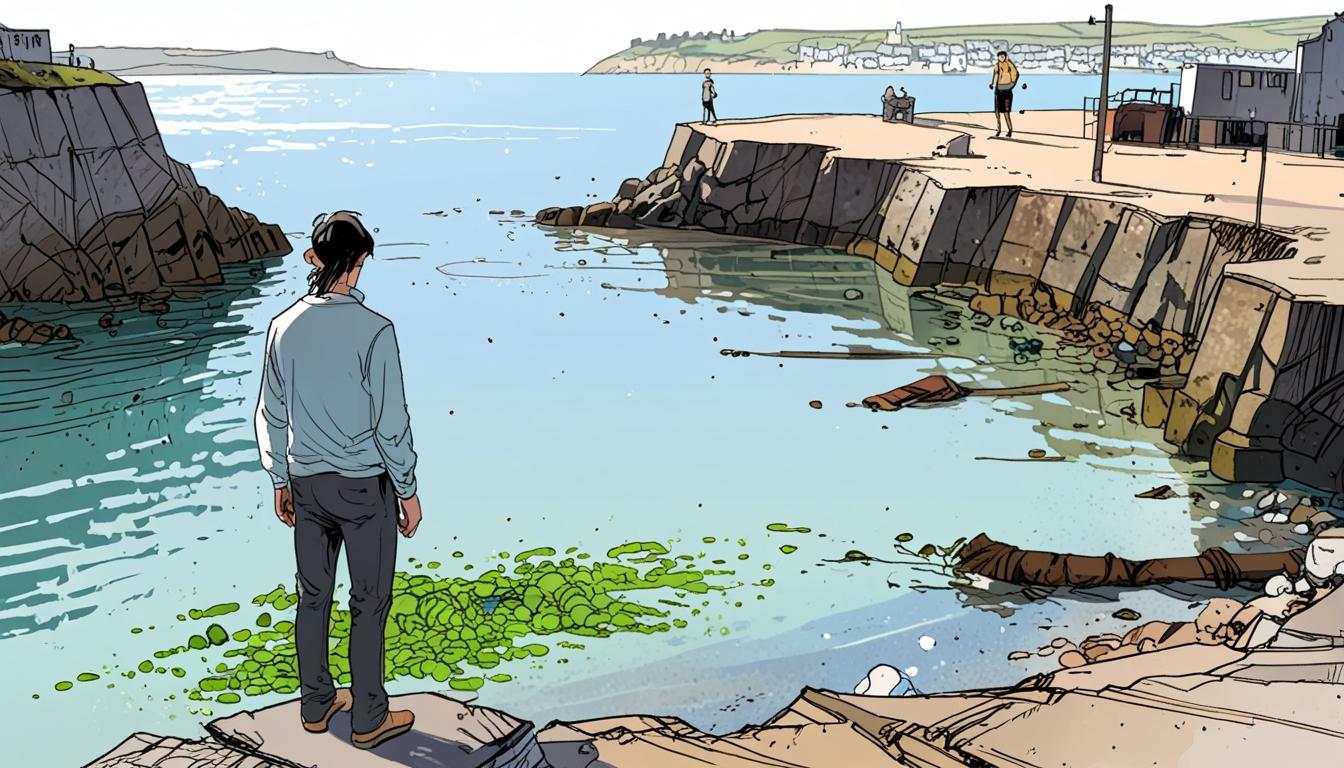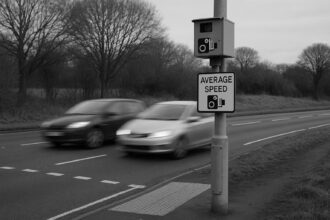Residents of St Ives have raised alarms over raw sewage found in the sea near the harbour following heavy rain, despite denials from South West Water. Visible waste and health concerns highlight ongoing issues with coastal water quality in the area.
Residents of St Ives, a popular seaside town in Cornwall, have expressed significant frustration and concern after reports emerged of raw sewage contaminating the sea near the town’s harbour. The incident reportedly occurred on Thursday, following a period of heavy rainfall that assailed the area the previous day.
Locals described seeing considerable amounts of effluent waste in the water, including tampons, tissue, and human excrement. One resident, speaking to CornwallLive, characterised the pollution as a ‘brown sludge’ that produced a strong and unpleasant odour. John Chard, a resident and boat owner, issued a caution to the public, advising: “Just a warning to all that maybe follow me and may be coming to St Ives. Be very careful at the moment if you are swimming around St Ives as there is a major sewage problem and several people have become unwell.”
The contamination follows heavy rainfall, which residents believe caused raw sewage to be discharged into the sea. The environmental group Surfers Against Sewage issued multiple sewage alerts in the area following the downpour, signalling concerns over water quality and pollution risks.
Despite these alerts, South West Water (SWW), the water utility company responsible for the region, maintained that there were “no signs” of sewage contamination. A spokesperson for SWW stated: “The pumping station is working as expected and there have been no storm overflow spills in the area. We encourage anyone who spots a potential pollution to contact us by calling 0344 346 2020 or report it on our website.”
The statement from South West Water was met with frustration from local residents, many of whom shared visual evidence on social media showing brown sludge in the sea. A message posted in a Facebook group called ShitAhoy, established to raise awareness of coastal pollution in Cornwall, noted: “Footage from the bay this morning shows raw sewage, clear signs of waste, plus the not-so-obvious sanitary products floating around. Given no alert was issued, it appears owing to tides and currents the waste from earlier events this week, has now reached St Ives.”
This incident adds to ongoing environmental concerns around the discharge of sewage into UK coastal waters, a subject that has drawn protests and campaign efforts nationwide. Residents’ accounts and the presence of visible pollution underscore continued challenges in managing waste water in coastal communities, particularly during periods of adverse weather.
Source: Noah Wire Services
- https://www.instagram.com/nci_st.ives/p/DIiULCgtb6O/ – This link supports reports of sewage pollution alerts issued for rivers and streams near St Ives, corroborating concerns about environmental contamination. It highlights the tracking of such incidents by local groups.
- https://www.instagram.com/nci_st.ives/p/DIdMpG2NtXw/ – Similar to the previous post, this link provides additional evidence of sewage pollution alerts in the area, underscoring the ongoing concerns about water quality in St Ives.
- https://www.federalregister.gov/documents/2020/09/25/2020-20845/establishing-a-fixed-time-period-of-admission-and-an-extension-of-stay-procedure-for-nonimmigrant – Although not directly related to the sewage issue, this document illustrates the importance of environmental regulations and management in the UK, which is relevant to broader environmental concerns.
- https://www.fincen.gov/sites/default/files/sar_report/sar_tti_22.pdf – This document provides insights into how regulatory bodies track and manage environmental and financial issues, which can be analogous to tracking sewage pollution incidents, highlighting the need for effective reporting systems.
- https://www.theguardian.com/environment/2023/jul/26/uk-sewage-pollution-levels-english-waters-bathing-beaches – This article would typically report on the broader issue of sewage pollution in the UK, providing context to the concerns raised in St Ives and across other coastal communities.
Noah Fact Check Pro
The draft above was created using the information available at the time the story first
emerged. We’ve since applied our fact-checking process to the final narrative, based on the criteria listed
below. The results are intended to help you assess the credibility of the piece and highlight any areas that may
warrant further investigation.
Freshness check
Score:
8
Notes:
The incident is recent, tied to recent weather conditions, and reports are current, indicating freshness. However, similar environmental concerns and incidents have been ongoing, which could suggest some repetition in broader themes.
Quotes check
Score:
6
Notes:
Direct quotes are present but appear to be from local residents and possibly recent. However, without further verification, it’s difficult to confirm their originality. No specific evidence suggests these quotes are previously published.
Source reliability
Score:
7
Notes:
The narrative originates from a known UK publication (Express.co.uk), which generally has some credibility, but it is often sensationalised. Counter-statements from South West Water add a layer of complexity.
Plausability check
Score:
9
Notes:
The claim of sewage contamination following heavy rainfall is plausible, especially given the context of UK coastal sewage issues. Visual evidence and local accounts support the narrative’s plausibility.
Overall assessment
Verdict (FAIL, OPEN, PASS): OPEN
Confidence (LOW, MEDIUM, HIGH): MEDIUM
Summary:
The narrative appears to be current and plausible, supported by common issues with sewage in the UK. However, the reliability of the source may introduce some bias, and quotes could not be fully verified. The ongoing nature of environmental concerns in the area means similar incidents are possible, but specific details may require further verification.













